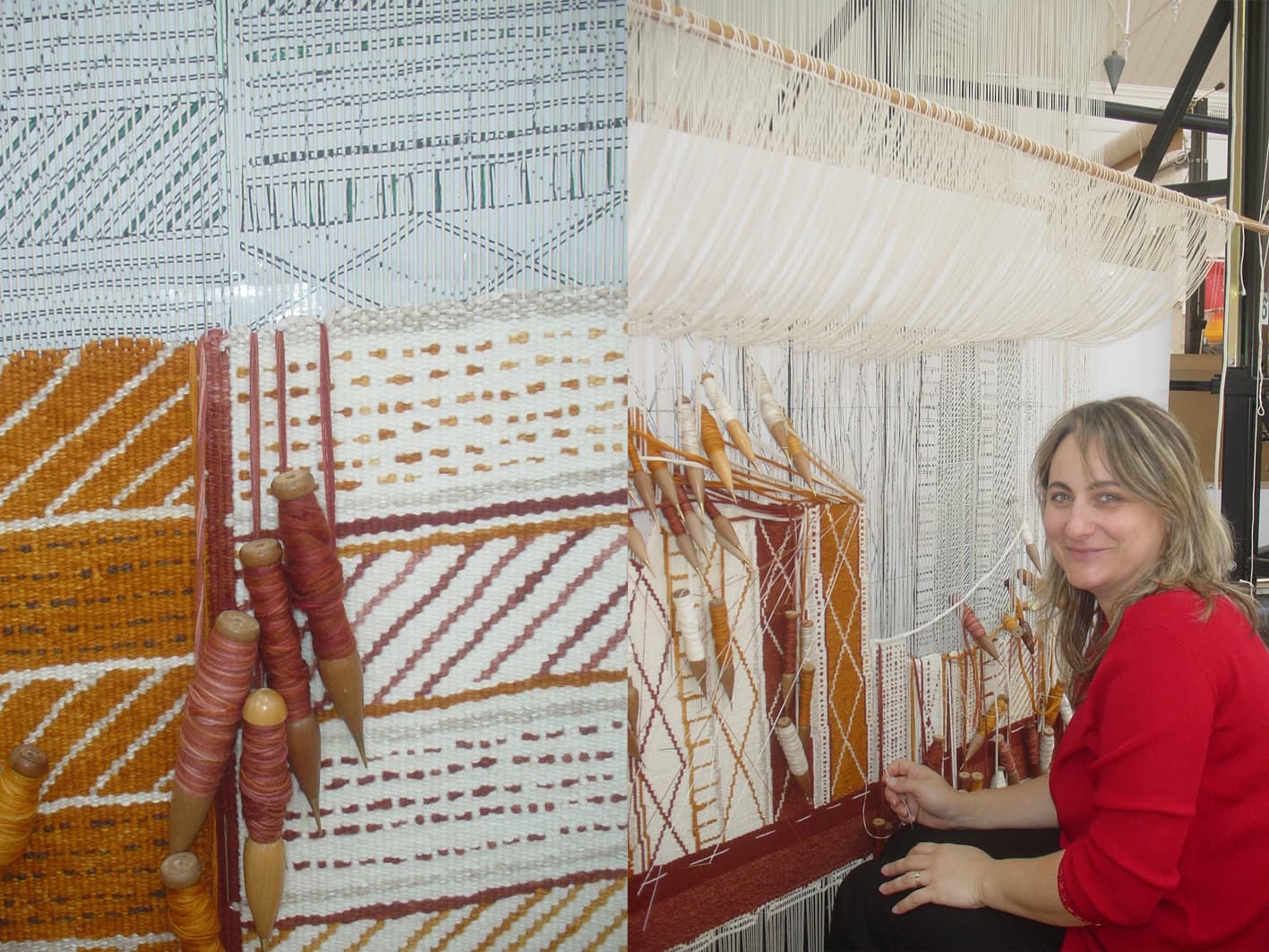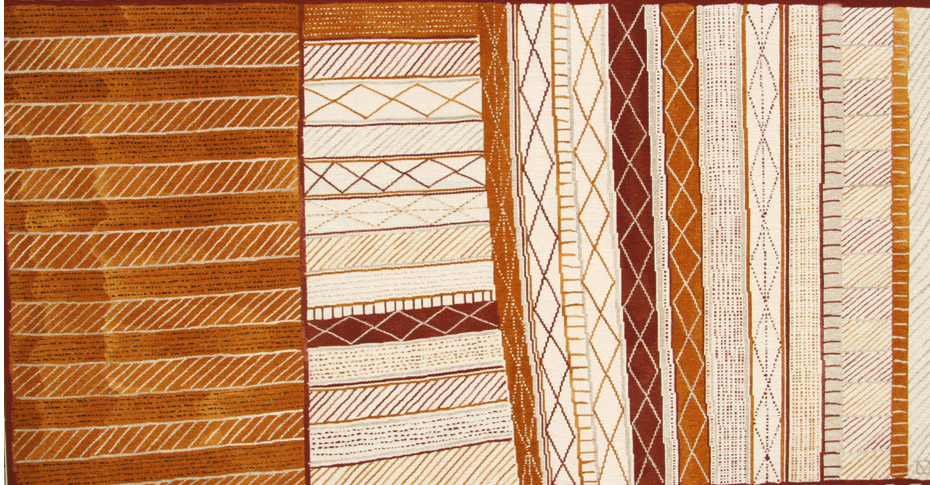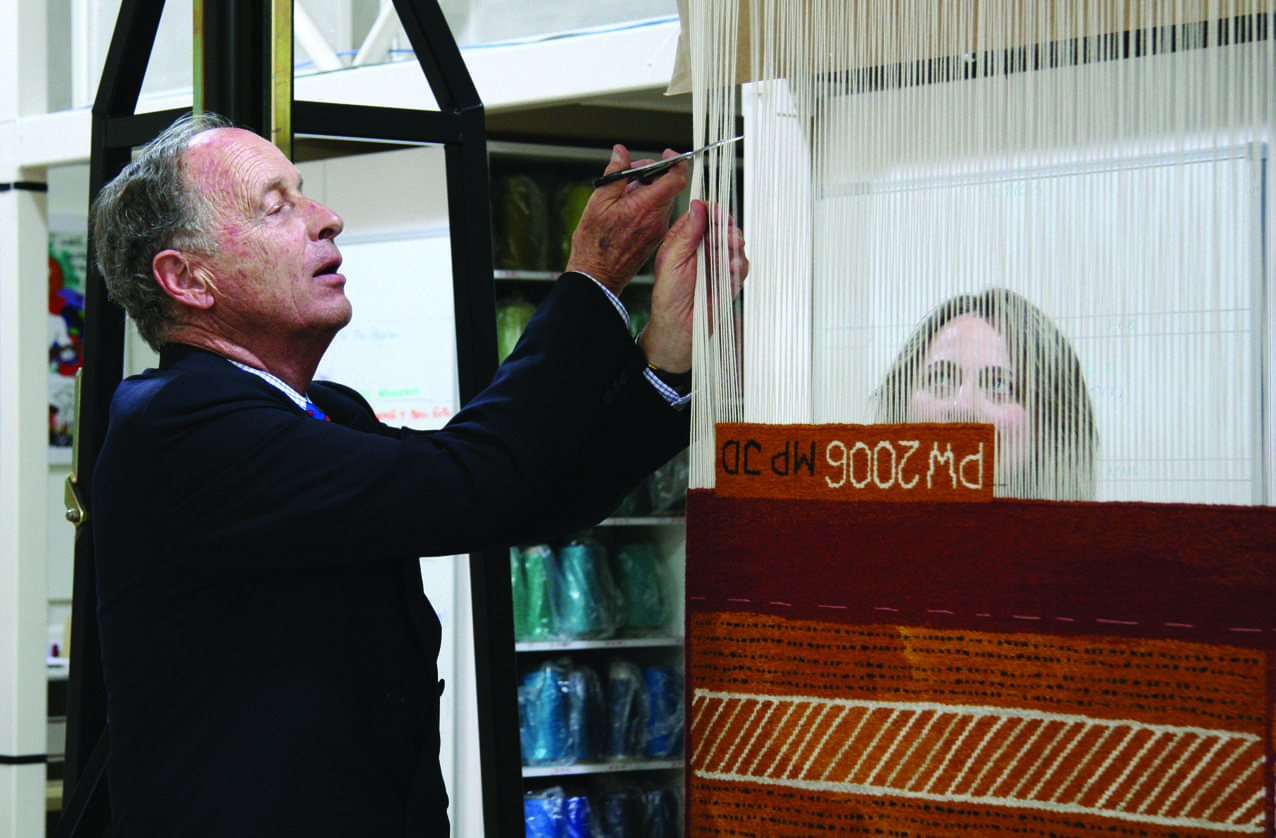


Pedro Wonaeamirri was born in 1974 on Melville Island, the larger of the Tiwi Islands, off the coast of Darwin in the Northern Territory. He lives in the remote community of Milikapiti (Snake Bay). In 2005 the ATW translated Wonaeamirri’s design Pwoja Pukumani body paint design into tapestry.
The imagery of pwoja body painting designs and his carved Pukumani poles are the artist’s link to the traditions and future of the Tiwi people. Tiwi art is derived from ceremonial body painting and the ornate decoration applied to Pukumani funerary poles, Yimawilini bark baskets, and associated ritual objects made from the Pukumani ceremony. Traditionally, deceased Tiwi people are buried on the day they pass away, but the Pukumani ceremonies are performed six months to several years after the death. Over the years, Wonaeamirri has developed his own style. Unusually, he has chosen to use a traditional wooden comb, giving his paintings a stylized look, whilst continually experimenting with combinations of blocks of ochre background and intricate pattern. Wonaeamirri is also well known for his Pukumani pole carvings. He says much of his inspiration comes from childhood memories of watching the elders paint and carve their designs.
Pwoja Pukumani body paint design is the second tapestry to be commissioned by the Tapestry Foundation of Australia, as part of the Embassy Tapestry Collection and was supported by private donations.
Pedro Wonaeamirri is represented by Alcaston Gallery, Melbourne.